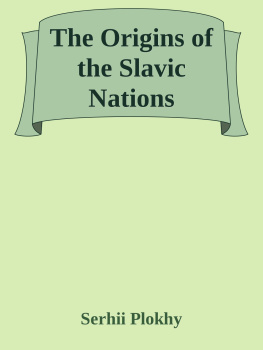A TASTE FOR OPPRESSIONANTHROPOLOGY OF EUROPE
General Editors:
Monica Heintz, University of Paris Nanterre
Patrick Heady, Max Planck Institute for Social Anthropology
Europe, a region characterized by its diversity and speed of change, is the latest area to attract current anthropological research and scholarship that challenges the prevailing views of classical anthropology. Situated at the frontier of the social sciences and humanities, the anthropology of Europe is born out of traditional ethnology, anthropology, folklore, and cultural studies, but engages in innovative interdisciplinary approaches.
Anthropology of Europe publishes fieldwork monographs by young and established scholars, as well as edited volumes on particular regions or aspects of European society. The series pays special attention to studies with a strong comparative component, addressing theoretical questions of interest to both anthropologists and other scholars working in related fields.
Volume 6
A Taste for Oppression
A Political Ethnography of Everyday Life in Belarus
Ronan Hervouet
Volume 5
Punks and Skins United
Identity, Class and the Economics of an Eastern German Subculture
Aimar Ventsel
Volume 4
In Pursuit of Belonging
Forging an Ethical Life in European-Turkish Spaces
Susan Beth Rottmann
Volume 3
All or None
Cooperation and Sustainability in Italys Red Belt
Alison Snchez Hall
Volume 2
European Anthropologies
Edited by Andrs Barrera-Gonzlez, Monica Heintz, and Anna Horolets
Volume 1
The France of the Little-Middles
A Suburban Housing Development in Greater Paris
Marie Cartier, Isabelle Coutant, Olivier Masclet, and Yasmine Siblot
A TASTE FOR OPPRESSION
A Political Ethnography of Everyday Life in Belarus
Ronan Hervouet
Translated by Dean Frances
Published in 2021 by
Berghahn Books
www.berghahnbooks.com
2021 Ronan Hervouet
The book was originally published in French by Le Bord de leau under the title Le Got Des Tyrans.Une Ethnographie Politique Du Quotidien En Bilorussie 2020 Le Bord de leau.
All rights reserved. Except for the quotation of short passages for the purposes of criticism and review, no part of this book may be reproduced in any form or by any means, electronic or mechanical, including photocopying, recording, or any information storage and retrieval system now known or to be invented, without written permission of the publisher.
Library of Congress Cataloging-in-Publication Data
Names: Hervouet, Ronan, author. | Frances, Dean, translator.
Title: A Taste for Oppression: A Political Ethnography of Everyday Life in
Belarus / Ronan Hervouet; translated by Dean Frances.
Description: New York: Berghahn, 2021. | Series: Anthropology of Europe;
volume 6 | Includes bibliographical references and index.
Identifiers: LCCN 2020058138 (print) | LCCN 2020058139 (ebook) |
ISBN 9781800730250 (hardback) | ISBN 9781800730267 (ebook)
Subjects: LCSH: Collectivization of agricultureBelarus. | Authoritarianism
Belarus. | Politics and cultureBelarus. | Political sociologyBelarus. |
BelarusSocial conditions1991 | BelarusRural conditions. | Belarus
Politics and government1991
Classification: LCC HN530.7.A8 H47 2021 (print) | LCC HN530.7.A8 (ebook)
| DDC 306.09478dc23
LC record available at https://lccn.loc.gov/2020058138
LC ebook record available at https://lccn.loc.gov/2020058139
British Library Cataloguing in Publication Data
A catalogue record for this book is available from the British Library
ISBN 978-1-80073-025-0 hardback
ISBN 978-1-80073-026-7 ebook
The love of order is cofounded with a taste for oppression.
Alexis de Tocqueville, Democracy in America, 1835
ACKNOWLEDGMENTS

I would like to thank all the Belarusians who welcomed me into their homes, in rural and urban areas, for their hospitality and kindness; Sasha for his friendship and indispensable help, without which this research would probably never have been successful; my friends in Minsk who helped me organize my field studies and find new contacts, and those who were present on a daily basis during my stays in Belarus (Ales, Andrei, Diana, Kyril, Roman, Said, Vadim, Vladik, Yves, and Zoya); Florence Weber for agreeing to sponsor my HDR (higher doctorate with accreditation to supervise research) and also for her support and the trust she has placed in me; the members of my HDR jury (Boris Ptric, Jessica Pisano, Antoine Roger, Jay Rowell, and Olivier Schwartz) for their advice, remarks and encouragement; colleagues at my laboratory in Bordeaux (France)Centre mile Durkheim (UMR 5116)which provides an invaluable working environment; Dean Frances at The Home of Translation in Bordeaux (France), who translated the manuscript from French into English with careful consideration of all my remarks and suggestions; colleagues and friends who have allowed me to discuss my current work and/or who have encouraged me during these years of research (notably lisabeth Anstett, Emmanuel Blanchard, Caroline Dufy, Alexandre Gofman, Glenn Mainguy, Pascal Ragouet, Andy Smith, Ioulia Shukan, and Jol Zaffran); and colleagues, friends, and relatives who had the patience to reread part or all of the final text (Charles-Henry Cuin, Franois Dubet, Jean Harambat, Michel Hervouet, Xabier Itaina, Marion Nogus, and Patrick Rdel).
The translation was made possible thanks to the support of the Centre mile Durkheim (UMR 5116).
This book is dedicated to Marion.
NOTES ON TEXT
I n this work, Russian words have been transcribed according to the ISO 9 standard. However, for proper nouns (Lukashenko, Brezhnev, etc.), first names (Sasha, etc.), and the names of cities (Mogilev, Babruysk, etc.), the common transcriptions, as used in the press, atlases, and literature, have been adopted.
Some of the cited authors use transliterations from Belarusian, which explains certain spelling variations in the manuscript. For example, in certain quotations, Lukashenko may also be spelled Lukashenka.
To guarantee their anonymity, all surnames and first names of the persons met in the field and cited in the manuscript have been changed, along with most of the names of the villages and towns in which they reside. The only exception is in













